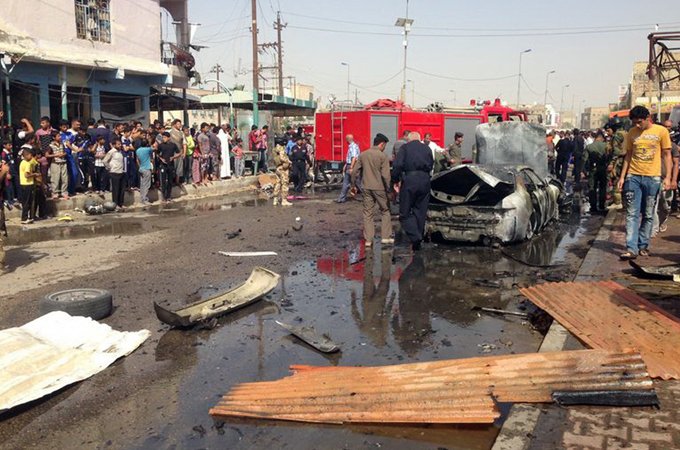by Darrin Simmons
Impunity Watch Reporter, Middle East
BAGHDAD, Iraq – May 2013, the most violent time period in Iraq since 2008, has activists fearing a pending sectarian war. The country has recently been plagued with car bombings and shootings causing injury, death, and destruction with nearly two thousand people killed since April.

In the city of Kut, a parked car bomb exploded causing the death of three people and injuring fourteen. Another car bomb targeting construction workers outside of the city killed two and injured twelve.
The city of Basra experienced a car bomb explosion to which another one followed shortly resulting in the death of at least five people. In nearby Aziziyah a car bomb exploding near a Shia mosque killed five and wounded ten. Twelve miles south-east of Baghdad, a roadside bomb followed by a car bomb exploded near the city of Madain. The explosion wounded fourteen people and killed three.
One witness recalled the chaos following the explosion aftermath, “I saw cars on fire, dead bodies covered with blood, and wounded people lying on the ground screaming for help. When police arrived, a second blast struck which was more powerful, leaving the street in a state of total destruction.”
Shootings have also caused fear and death amongst the Iraqi people. In Mosel, gunmen began shooting police officers who were guarding a stretch of oil pipeline, injuring five and killing four. Since 2003, Iraqi Sunnis have rebelled against the Shiite dominated government by crossing into Syria to fight against Syrian President Bashar al-Assad. This tension and distrust eventually caused the “intercommunal strife of 2006-07,” and looks to give rise to another war.
Sectarian tensions between Shiites and Sunnis have been escalating over the last six months. Martin Kobler, Iraq’s outgoing U.N. envoy has vocalized his concern warning that the violence is “ready to explode.” The Iraqi government continually denies the claim by Sunni activists who accuse Prime Minister Nouri Maliki of discriminating against them. Sunni protests across Iraq and the lack of control by the Shiite authorities have fueled the fire, claim experts on Iraqi domestic politics.
While no group has claimed responsibility for the devastation, many believe Al Qaeda is involved. The attacks began just one day after the Iraqi Al Qaeda leader, Abu Bakr Al Baghdadi, refused to obey an order from the Al Qaeda head of command to stop claiming control of over the group’s Syrian branch.
Attacks such as car bombs bear a striking resemblance to the methods used by Al Qaeda in Iraq. Suicide bombers, car bombs, and coordinated attacks on security forces are all staples of the terrorist group.
For more information, please see the following:
National – Iraq violence rises to levels not seen since 2008 – 17 June 2013
Al Bawaba – 20 killed in wave of car bombs across Iraq -16 June 2013
Aljazeera – Deadly blasts rock southern Iraqi cities – 16 June 2013
BBC – Iraq car bombings: Attacks hit mainly Shia cities-16 June 2013
Reuters – Car bombs, shootings kill 30 across Iraq – 16 June 2013